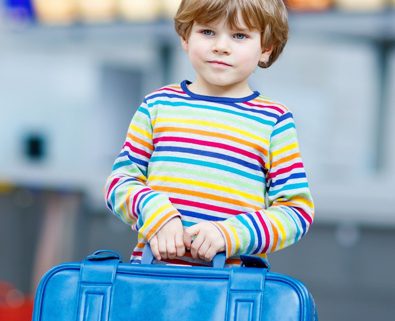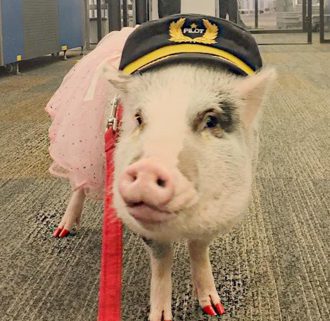2017 NFL Pro Bowl to Be Autism-Friendly
 This Sunday, the NFL’s Pro Bowl will take place in Orlando, Florida. As the location of Disney World, Universal Studios, SeaWorld, and more, Orlando is one of the most family-friendly destinations in the U.S. And it’s about to get a little friendlier.
This Sunday, the NFL’s Pro Bowl will take place in Orlando, Florida. As the location of Disney World, Universal Studios, SeaWorld, and more, Orlando is one of the most family-friendly destinations in the U.S. And it’s about to get a little friendlier.
For the first time, this year’s Pro Bowl is striving to be as autism-friendly as possible. This includes sensory tools, a designated quiet room, and specially trained staff to help families. The staff will include both security personnel and Camping World employees, who will learn more about autism and the ways that they may be able to assist autistic families during the game.
Special Sensory Sacks will be available to all families, thanks to efforts by the group A-OK Autism in Tulsa, Oklahoma, which worked closely with the NFL. These sacks will contain a stress ball, noise-cancelling headphones, and a stadium wristband where the wearer’s seating information can be written down in case they get lost. The sacks will also contain a lanyard and badge that a person with autism or other developmental disability can wear to let others know, for example, if they are unable to speak. Of course, the badges can be worn or not worn at the individual’s or family’s discretion.
“Our goal is to make the game as family-friendly as possible,” Anna Isaacson, the NFL’s senior vice president of social responsibility, told the Orlando Sentinel. “We want to see if this is something the fans take advantage of and, if so, whether we can extend it to the Super Bowl and perhaps share it with the rest of the league.”
The NFL got the idea of an autism-friendly game from the Seattle Seahawks, which has six players on the NFC Pro Bowl Roster. The Seahawks first teamed with A-OK Autism in October 2015. Seahawks General Manager John Schneider and his wife have a child with autism, and they helped institute the same autism-friendly amenities—including the trademarked Sensory Sacks—at Seahawks Stadium then, with much success.
The program will be announced to Pro Bowl attendees on Game Day, and they’ll get instructions on where to go to pick up the Sensory Sacks.
The idea behind this is that there isn’t always a visual way to recognize if someone has autism,” Isaacson said. “And it’s hard for people who aren’t experienced with it to recognize that certain behaviors are part of the autism spectrum. We just want to make sure we’re creating a safe and comfortable and inclusive environment.”
In addition to the Seahawks, the Philadelphia Eagles and the Indianapolis Colts have also been working to make their games and facilities autism-friendly.



 Back in November,
Back in November, 
 The
The 
 Tonight, as I sit here writing a plethora of lists for our family holiday travel, I posted a poll to a parenting support group on Facebook asking for tips and tricks for surviving holiday travel with special needs kids. And boy, did they ever come through.
Tonight, as I sit here writing a plethora of lists for our family holiday travel, I posted a poll to a parenting support group on Facebook asking for tips and tricks for surviving holiday travel with special needs kids. And boy, did they ever come through.
 Visitors to San Francisco International Airport may already be familiar with the airport’s
Visitors to San Francisco International Airport may already be familiar with the airport’s 
 Those of you who have had your child go absolutely ballistic when the Chuck E. Cheese figure came close to the table (raises hand) or the animatronic band started to play up on the stage (yup, that too) will be thrilled to learn that at least one Chuck E. Cheese location is now featuring Sensory Sundays.
Those of you who have had your child go absolutely ballistic when the Chuck E. Cheese figure came close to the table (raises hand) or the animatronic band started to play up on the stage (yup, that too) will be thrilled to learn that at least one Chuck E. Cheese location is now featuring Sensory Sundays.
 Illinois’ first toy store aimed at children with developmental challenges recently opened for business in Chicago. The store functions as part of the non-profit CARE Foundation and specializes in toys for children on the autism spectrum, marketing itself as a one-stop shop for parents and educators.
Illinois’ first toy store aimed at children with developmental challenges recently opened for business in Chicago. The store functions as part of the non-profit CARE Foundation and specializes in toys for children on the autism spectrum, marketing itself as a one-stop shop for parents and educators.
 I had a message from a fellow autism parent this week. Two words of that message have impacted me greatly. She wrote:
I had a message from a fellow autism parent this week. Two words of that message have impacted me greatly. She wrote:
 Although Liam Smith suffered his first-ever defeat to Saul ‘Canelo’ Álvarez in the recent WBO light middleweight title bout AT&T Stadium in Dallas, he’s far from a loser in our eyes. Liam, along with older brothers Paul and Stephen, and younger brother Callum, is part of a dynamic professional boxing family hailing from Liverpool, England. In 2013, the family made history when three of the brothers claimed the British light-middleweight (Liam), super-featherweight (Stephen), and super-middleweight (Paul) belts at the same time. Younger brother Callum is also a boxer to be reckoned with, with many experts saying he’s the best of the foursome.
Although Liam Smith suffered his first-ever defeat to Saul ‘Canelo’ Álvarez in the recent WBO light middleweight title bout AT&T Stadium in Dallas, he’s far from a loser in our eyes. Liam, along with older brothers Paul and Stephen, and younger brother Callum, is part of a dynamic professional boxing family hailing from Liverpool, England. In 2013, the family made history when three of the brothers claimed the British light-middleweight (Liam), super-featherweight (Stephen), and super-middleweight (Paul) belts at the same time. Younger brother Callum is also a boxer to be reckoned with, with many experts saying he’s the best of the foursome.

